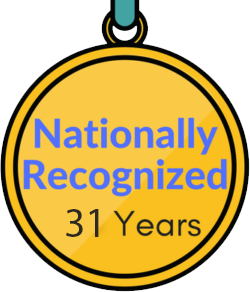In the United States, regulatory compliance for industrial floor cleaning encompasses a range of standards and regulations – continue reading to learn more.
While industrial floor cleaning significantly enhances the aesthetics of any industrial setting, its purpose is not purely aesthetic – in fact, it is extremely important for ensuring the safety of employees and customers in their day-to-day operations.
In the United States, regulatory compliance for industrial floor cleaning encompasses a range of standards and regulations designed to ensure safety, health, and environmental protection. These regulations can come from federal, state, and local government agencies.
In this article, we will take a look at the primary regulatory bodies and the types of standards they enforce when it comes to industrial floor cleaning regulations:
Why Are Industrial Floor Cleaning Regulations Important?
Regulatory compliance is crucial for industrial floor cleaning because it ensures that cleaning practices meet established safety and health standards. Compliance helps prevent workplace accidents, such as slips, trips, and falls, by maintaining clean and safe conditions.
It also avoids legal and financial penalties associated with violating industry-specific regulations. Furthermore, adhering to compliance helps protect the environment by ensuring that waste and chemicals from cleaning processes are properly managed.
This not only safeguards the well-being of employees but also maintains a company’s reputation and operational efficiency, making it essential for long-term business sustainability.
What Are The Penalties For Failing to Meet Regulations ?
Failing to meet industrial floor cleaning regulations can result in various potential penalties, primarily issued by regulatory bodies such as OSHA or the EPA in the United States. Some of the most common ones include:
- Fines and fees – you can face substantial fines for non-compliance with safety and environmental regulations, which vary depending on the severity and frequency.
- Operational restrictions – in some cases, regulatory agencies may impose restrictions on the operations of your business until compliance is achieved, leading to losses.
- Legal consequences – failing to meet industrial floor cleaning regulations may also result in legal actions against you, including lawsuits from those affected by unsafe conditions.
- Increased insurance costs – a history of non-compliance can lead to higher insurance premiums as the risk of workplace accidents and environmental damage is higher.
- Loss of business licenses – in some industries, repeated or severe non-compliance can lead to revocation of business licenses or certifications.
- Damage to reputation – non-compliance can harm your reputation, affecting relationships with customers, partners, and stakeholders.
Who Imposes Industrial Floor Cleaning Regulations in the USA?
When it comes to industrial floor cleaning regulations, it is important to keep in mind that there are different regulatory bodies and types of standards that they enforce. Some of the major ones include:
1. Occupational Safety and Health Administration (OSHA)
OSHA sets and enforces standards to ensure workplace health and safety in industrial settings. These include regulations related to:
- Slip, Trip, and Fall Prevention: OSHA’s guidelines require employers to keep walking and working surfaces clean and free of hazards that could cause slips, trips, and falls (e.g., wet floors must be marked with warning signs).
- Hazard Communication Standard (HazCom): This standard requires that information about the identities and hazards of the chemicals in the workplace is available and understandable to workers. This impacts how cleaning chemicals are stored, used, and disposed of.
2. Environmental Protection Agency (EPA)
The EPA enforces environmental laws designed to protect the environment from harmful pollutants, which can include the disposal of industrial waste:
- Resource Conservation and Recovery Act (RCRA): This act governs the disposal of solid and hazardous waste, including certain cleaning chemicals.
- Clean Water Act (CWA): Industrial facilities must ensure that waste water from their cleaning processes is treated before being discharged to prevent pollution of water bodies.
3. National Fire Protection Association (NFPA)
The NFPA sets codes and standards to minimize the risk and effects of fire and other hazards:
- NFPA Codes: These include standards on how to store and handle flammable liquids and gases that might be used in cleaning processes.
4. Americans with Disabilities Act (ADA)
The ADA requires that all public facilities, including workplaces, be accessible to disabled persons, which can influence how cleaning is conducted to ensure no barriers are created through improper storage of cleaning equipment or failure to maintain clear pathways.
5. Food and Drug Administration (FDA) and United States Department of Agriculture (USDA)
For industries involved in food production and processing, the FDA and USDA set standards to ensure food safety:
- Sanitation Standard Operating Procedures (SSOPs): These are mandatory for meat and poultry processing plants and cover the cleanliness of facilities including floors.
- Current Good Manufacturing Practice (CGMP) Regulations: These FDA regulations include requirements for the proper design, monitoring, and control of manufacturing processes and facilities.
Considering the variety of regulatory bodies and standards that control safety in industrial settings, it is essential for all businesses to stay compliant with the industrial floor cleaning regulations in the US.
Fortunately, achieving that is actually a lot easier than you would think – instead of having to meet each one of the standards on your own, you can partner with a professional floor care company who is already compliant, such as TCS Floors.
Nationally recognized and with over 30 years of experience, our highly skilled team is compliant with safety regulations, ensuring that you can maintain compliance and mitigate risks.
What Are The Benefits of Industrial Floor Cleaning?
Industrial floor cleaning enhances safety by reducing slip hazards, boosts productivity by maintaining a clean work environment, and extends the lifespan of flooring materials through proper maintenance.
Regular cleaning also helps businesses comply with health and safety regulations, thus avoiding potential legal and financial penalties. Moreover, a well-maintained facility improves overall workplace morale and projects a positive image to visitors and potential clients.
Conclusion
Not meeting all the industrial floor cleaning regulations on your own? Don’t worry – the good news is, you don’t have to – you can partner with a company that already does.
Nationally recognized and with over 30 years of experience, TCS Floors is a team of trustworthy, results-driven technicians with high attention to detail that will ensure that your industrial setting is perfectly cleaned and maintained every time.
FAQ
What OSHA standards apply to industrial floor cleaning?
OSHA standards relevant to industrial floor cleaning primarily focus on ensuring floors are kept free of hazards that could cause slips, trips, and falls. This includes keeping floors clean and dry, providing adequate drainage in wet areas, and using appropriate signage for wet floors. Compliance with these standards is crucial for maintaining a safe working environment.
Are there specific training requirements for staff involved in industrial floor cleaning?
Yes, staff involved in industrial floor cleaning must receive training specific to the use of cleaning chemicals, equipment operation, safety protocols, and emergency response. This training ensures they handle materials safely and maintain compliance with OSHA regulations, thereby protecting themselves and their workplace from potential hazards.
What are the ADA requirements for floor cleanliness in workplaces?
The ADA requires that workplace floors be kept clear of hazards that could impede accessibility for individuals with disabilities. This includes ensuring that floors are clean, dry, and free of obstacles that might cause slips, trips, or falls, thereby promoting a safe and accessible environment for all employees and visitors.
How do local health and safety regulations affect industrial floor cleaning?
Local health and safety regulations dictate specific cleaning standards to ensure a safe working environment. These regulations can affect the frequency, methods, and products used in industrial floor cleaning, ensuring that facilities adhere to regional guidelines for maintaining cleanliness and preventing accidents in the workplace.
How can businesses ensure they are up-to-date with changes in floor cleaning regulations?
Businesses can stay updated with floor cleaning regulations by regularly consulting with legal experts, subscribing to updates from regulatory bodies like OSHA and the EPA, and participating in industry seminars and training. Establishing a compliance officer role within the organization can also help monitor regulatory changes and ensure adherence to new standards.
How does compliance with floor cleaning regulations impact insurance premiums?
Compliance with floor cleaning regulations can positively impact insurance premiums by demonstrating a commitment to workplace safety and risk management. Insurers often offer lower premiums to businesses that maintain high safety standards, as this reduces the likelihood of accidents and associated claims.



